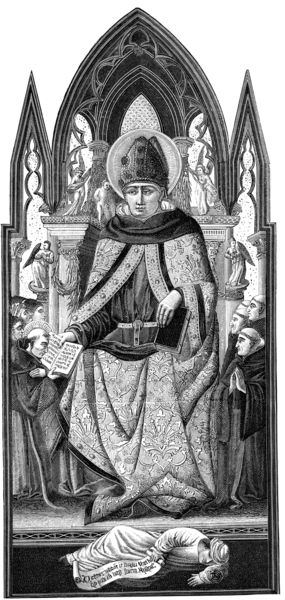
Rejoice in the Lord always. I will say it again:
rejoice! (Philippians 4:4).
His godly
mother worried greatly for her son. She had good reason.
He was very
bright, but he was also promiscuous and wild and rebellious.
And he was – by his own admission – unhappy.
However, many
consider Aurelius Augustine (died 430 AD) one of the greatest thinkers of the first
millennium, second only to his Lord and Master, Jesus of Nazareth.
After spending
his adolescence and early adult life pursuing unbridled sex, various philosophies,
and mounting career success, Augustine came to Christ at age 33.
His mother had
faithfully prayed for her son. She lived to see his conversion to Christ and died
a year later.
As he matured,
Augustine thought deeply about meaning in life and developed his own theory
of happiness. He understood happiness and fulfillment to be the natural inclination of every person, defining it as a state of being in which one’s life is seen as desirable and lacking nothing.
However, drawing on his own broad experience and observing the lives of others, Augustine came to the stark conclusion that even when desire and lack are satiated, happiness can never be found in this physical world.
His experiences of the body and mind – sex, food, the enjoyment of art – all lead ultimately to futility.
The possession
of things, and the pursuit of fame, celebrity and power left him vacant. If they
resulted in enjoyment, it was fleeting.
At every turn,
lasting happiness eluded him.
That knowledge – drawn from his own experience and study of the Scriptures – framed the heart of his schema: defying God’s eternal standards in the pursuit of fulfillment is a deception. The nature of sin is that it overpromises & underdelivers.
Self-centred
quests promise happiness but fail to deliver.
And yet, our
souls yearn for fulfillment, that which we call happiness.
His conclusion:
happiness is joy that comes from knowing truth. Or in his words, "happiness is itself a joy in the truth".
And because ultimate
truth leads always to God, it follows that a relationship with God is essential
for joy, for happiness.
Augustine’s conclusion to the matter: fulfillment and joy – what we generalize as happiness – cannot be known without knowing God.
He saw the great
pining of the human heart as a profound, unending longing for the Lord.
That’s how God wired us. That’s some of what it means to be created in His image.
Augustine would prayerfully acknowledge, “In looking for You, I seek the happy life”.
Over 300 years before Augustine’s conversion to Christ, Paul wrote to the church at Philippi. He was a prisoner of Caesar, under house arrest in Rome. He knew uncertainty, deprivation, and the shadow of death by execution.
His original readers were 2000 kms away. He’d not been to that town since he evangelized there 10 years earlier.
And yet he provided great spiritual advice – and served as an undeniable example – for those 1st century disciples of the
Lord Jesus.
Rejoice in the Lord always. I
will say it again: rejoice!
Takeaway: Fast-forward to our day. How do I go about
that?
Rejoice is a term not often found in contemporary
conversation. It simply means to choose joy.
Joy is equal parts happiness, and contentment, and
satisfaction, and delight, and peace, and gratitude.
And for those empowered by the Spirit of God – the possession of every true follower of Christ – it is available. It is to be seized, taken hold of, apprehended.
Joy is there for
the choosing.
It is the
experience of those who consistently bathe their minds in the goodness of God.
To recognize who He is, what He’s done in Christ, what He’s doing in our lives is to experience His joy.
To constantly
read His Word, and to treasure Christ, is to experience rigorous joy that
sustains, elevates, protects, stabilizes and secures in the Lord.
Rejoice in the Lord always. I will say it again:
rejoice!
~graphic
from freeimages.com